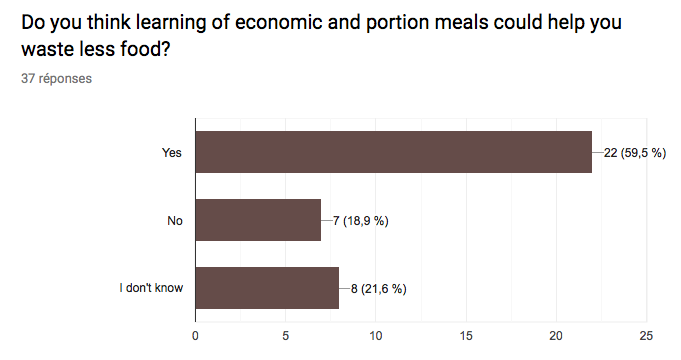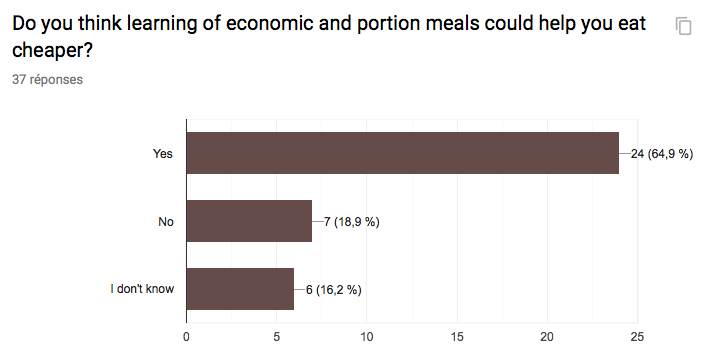The current issue
Our project aims to address the problem of food waste among the student population in France. Food waste is one of today’s most pressing issues due to its double polluting effect. First, food requires a large amount of resources to be produced. Not only are these resources scarce and should therefore be used efficiently and in moderation, but they also contribute to pollution as they are being utilised in the production process. It logically follows that as food is wasted, all the resources needed to grow the final produce are automatically wasted as well. Second, disposal of food also adds to pollution for two reasons. On the one hand, disposal procedures require the use of a great amount of resources which creates further pollution. On the other, while sitting in landfills, organic waste releases methane which is 21 times more polluting than carbon dioxide (Simon 2018). It is therefore clear that food waste is one of the primary issues to be addressed in the fight for a more sustainable future.
Our project lies within the framework of the Sustainable Development Goals, and specifically at the intersection between SDG 12 and 13 (respectively, Climate Action and Responsible Consumption and Production), aiming at reducing the food waste problem among the student population in France. According to the Minister of Ecology, France wastes 7.1 million tonnes of food every year, of which 70% is wasted by consumers (Chrisaphis 2016). A big chunk of the problem, therefore, is produced and perpetrated by the demand side of the industry, meaning that buyers must be educated to a more sustainable approach to food consumption.
The role of students is often forgotten when discussing the issue of food waste reduction. Having limited financial resources, students are supposed to consume (and therefore waste) less. In fact, students usually have a budget to respect. On average, in France, they have between 600€ and 1,000€ (included rent, food, electricity, transport, phone, internet, etc.), of which food expenses represent 25-30%. Nevertheless, our project stems from the observation that the student life provides many incentives to waste food. For example, many students in France live alone, either in student accommodations with single rooms or small studios in the cities. This means that when they cook at home, students usually have to make food for one person only. As most food in supermarkets is sold in packages for more than one person, it is easy to see how students can easily end up wasting a lot of food as they cannot finish in time all the groceries they bought. Furthermore, the student life can be rather hectic as students meet new people, attend events and spend less time at home, resulting in more food being unused and ultimately getting thrown away (Gil 2015).


With this said, our team has worked together in an attempt to answer the following question: How can we incentivize students to waste less food knowing that they have not yet developed proper food-management behaviors?
By promoting a sense of community and sustainable lifestyle, we believe that F.OO.D.L.Y. can provide the answer.



